Cancer Forces a Return to the Fold
Editor’s Note: During November, as many people give thanks, we also honor National Family Caregivers Month. Cancer has transformed many a family member into a caregiver, and while the role can be extremely rewarding, it can be stressful and painful as well. Here, a young adult leukemia survivor shares his story, along with his deep well of gratitude, for his primary caregiver—his mother.
Martin Townsend had just gotten his first taste of independence. He had enjoyed his freshman year at the University of Alabama – Tuscaloosa and was back on campus for sophomore year.
But he didn’t feel well. Random fevers and exhaustion were sapping his strength. He pushed past his symptoms for a while, but eventually went to the doctor, and in March 2011, he was diagnosed with biphenotypic leukemia, a rare cancer that combines features of other leukemia types. He would have to leave school and start treatment for cancer.
Martin’s path through cancer treatment wasn’t especially smooth. Upon leaving school, he was hospitalized for 36 days while he underwent intense induction chemotherapy. The chemotherapy led to remission, but he remained on a less-intense schedule of chemotherapy for the next three and a half years to reduce the chance of recurrence.
Martin’s therapeutic regimen included steroids, which ultimately damaged his hip and led to a hip replacement in May 2014, when he was just 23. Still, by 2014, his remission seemed solid, and doctors said he was through with chemotherapy.
However, in March 2015, Martin’s blood work showed that his leukemia had returned. After conventional chemotherapy failed to produce a remission, he began taking blinatumomab (Blincyto), an immunotherapeutic treatment that had been approved by the U.S. Food and Drug Administration just three months earlier.
He again went into remission, but this time, doctors also recommended a bone-marrow transplant. After an extensive search, in July 2015, he received a transplant from his father—a partial match.
Today, he is feeling well and regaining strength. Now 25, he can look back at the illness that halted his college career and see how it has shaped his character.
“I was 19 when I was diagnosed, at a point in my life where I was just beginning to figure things out,” Martin says. “To have that foundation flipped upside-down gives you a perspective that not every young adult is going to have. Not everyone has to face their own mortality or give up their independence.”
He was never alone through his illness; his mother, Virgie Townsend, stepped in as his primary caregiver. They were already close; Martin is Virgie’s only child, and she’d raised him as a single parent.
“My mom is the type of mom who will be there in every way she can, and then some,” Martin says with a laugh. “I can only imagine how horrifying it would be to hear that your child has a life-threatening illness.”
And it was. Virgie still recalls the day they learned of Martin’s diagnosis.
“I went down to Tuscaloosa to meet with the doctors, and Martin had already gotten them to tell him the news. He was anxious and didn’t want to wait,” she says.
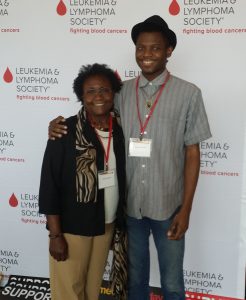
The Townsends are exploring advocacy efforts, and attended a Leukemia & Lymphoma Society regional conference in Atlanta in 2015.
“Martin said, ‘Mama, I have cancer.’ I didn’t have time to be scared. Something welled up in me, and I believe it was the spirit of God, but I told him, ‘We’re going to get through this. I don’t know how, but we will.’ From then on, it was just a matter of comforting him and letting him know that he would be OK.”
But Martin says her role was even greater. She helped him financially, took him to appointments, stayed with him when he was in the hospital, and encouraged him to stay with her if he was too weak to be in his own apartment.
Both mother and son admit the transition from independence to reliance and back wasn’t always easy.
Virgie remembers one day shortly before the bone-marrow transplant. It was a chilly, rainy day, and Martin made plans to go out with friends to see a band.
“I started telling him he shouldn’t go, that it was too dreary, and he was pushing back,” she recalls. She asked a nurse for advice.
“She said I should let him go and do his thing,” Virgie says. “She knew a hard time was coming, and she wanted him to have his night out. It helped me see that Martin had to experience some things the way he wanted to experience them.”
Their shared experience has catalyzed both Martin and Virgie to advocate for cancer patients. Both have joined the Scientist↔Survivor Program (SSP) run by the American Association for Cancer Research (AACR), which is designed to broaden survivor and patient advocates’ understanding of fundamental topics in cancer research.
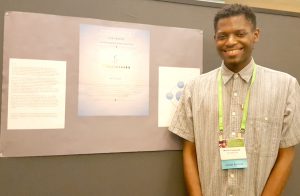
Martin Townsend presented a poster at the AACR Conference on the Science of Cancer Health Disparities in September 2016.
Through the SSP, they attended the AACR’s Science of Cancer Health Disparities Meeting in 2016. Both are considering ways they could help patients in the Birmingham area, perhaps by establishing a support group or, someday, a foundation.
“Going to the AACR meeting really opened my eyes,” Martin says. “Now that I feel better physically, I’m thinking about what I can do in terms of advocacy or survivors’ groups. I’d like to make sure that there’s a supportive community of people who care about each other.”
Presently, Martin sees the doctor who performed his bone-marrow transplant every other week. Twice a week, he undergoes extracorporeal photophoresis treatments to ensure the success of his transplant. Now that he feels healthier, he occasionally bristles at the routine of doctor’s appointments and treatments, but he knows he’s building strength for his future. He’s poised to return to college in January, considering a major in computer science.
Virgie says cancer forced them to draw strength from each other.
“We have gained inner strength and a new purpose: a purpose to fight cancer with all that we have,” she says.
“I’m glad I’ve been able to be there for him,” she says. “But I’ve learned that I do have to back off at times and give him the space to be a 25-year-old man.”
Meanwhile, Martin knows the value of his mother’s role as caregiver.
“I really love and appreciate my mom,” he says. “She was always there.”

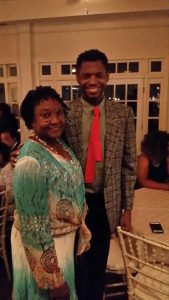
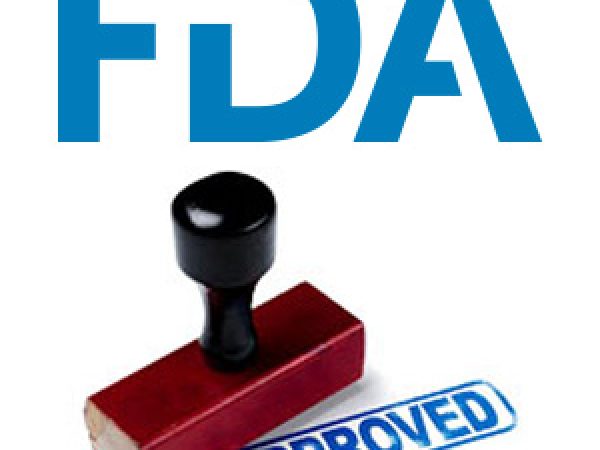
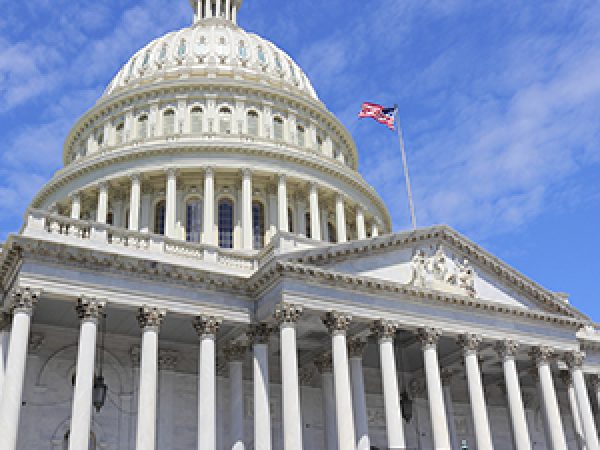
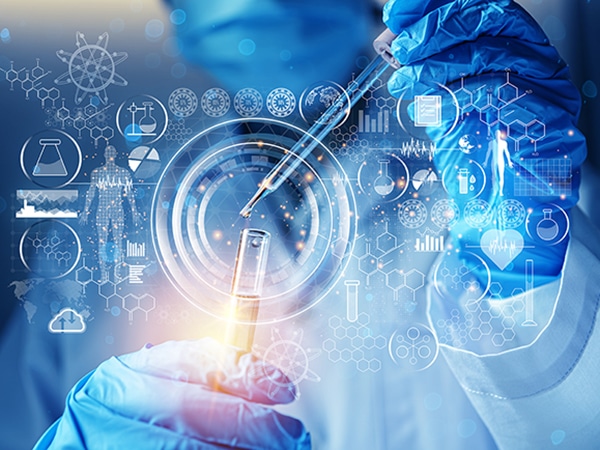
Proud of you both Mr and Ms Townsend didn’t know all of your Story till took time to read it a true And pure example of Family is Strength. May prayers is that God continues to give you both strength to fight! Love you Martin Townsend….Sign Your Cousin